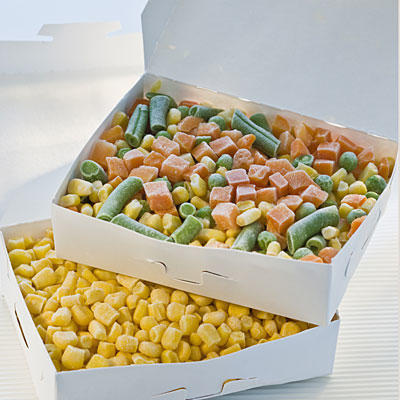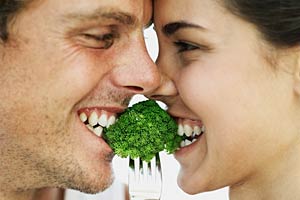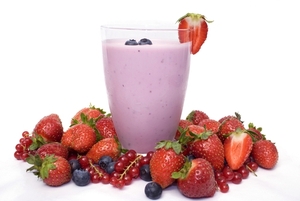How Protein Can Help You Lose Weight Naturally
1. Increased satiety: Protein is the most satiating macronutrient, meaning it keeps you feeling full for longer. When you consume protein, your body releases hormones such as cholecystokinin and glucagon-like peptide-1 (GLP-1) which signal fullness to your brain, reducing your desire to snack and overeat.
2. Preserved muscle mass: During weight loss, it's important to preserve lean muscle mass. When you restrict calories, your body breaks down both fat and muscle for energy. Protein helps to spare muscle tissue by providing the amino acids needed for muscle repair and growth. This helps boost your metabolic rate and promotes a leaner body composition.
3. Increased energy expenditure: Consuming protein requires more energy than digesting other macronutrients. This is called the thermic effect of food (TEF). Protein's TEF is about 20-35%, meaning that 20-35% of the calories consumed from protein are burned during digestion. This results in a higher calorie burn and increased energy expenditure.
4. Appetite and calorie control: Protein helps regulate hormones that control appetite, such as ghrelin (the hunger hormone) and leptin (the satiety hormone). Adequate protein intake helps reduce the production of ghrelin and increases leptin levels, leading to reduced hunger and increased feelings of fullness. This makes it easier to control your appetite and calorie intake.
5. Better body composition: When you lose weight, you want to lose fat while preserving muscle. By increasing protein intake, you can achieve this goal more effectively. Protein helps build and maintain muscle mass, which not only improves your body's appearance but also boosts metabolism and strength.
How much protein should you eat?
The recommended daily protein intake varies based on individual factors such as age, gender, activity level, and weight loss goals. Generally, it is recommended to consume 0.8-1 gram of protein per kilogram of body weight per day. For example, a 150-pound person (68 kg) would need to consume around 55-68 grams of protein per day.
You can get protein from a variety of sources, including:
* Lean meats and poultry
* Fish and seafood
* Eggs
* Dairy products
* Legumes (beans, lentils, chickpeas)
* Nuts and seeds
* Whole grains
If you struggle to meet your protein needs through diet alone, you may consider using protein supplements such as protein powders or shakes. These supplements can be convenient for adding protein to your meals or snacks, but it's important to prioritize whole food sources of protein when possible.
Remember that weight loss is a holistic process influenced by various factors such as diet, exercise, sleep, and stress management. While protein can be a valuable tool for weight loss, it's essential to adopt a balanced and sustainable approach to achieve and maintain your goals.
-
Only 12 Minutes a Day and Your Legs Will Be Irresistible! Exercises That Fit Everyone
At the beginning of the spring, apparently everyone is concerned a
-
Sassy Water – The Most Efficient Weight Loss Drink That Melt Fat Like Crazy – Can You Prepare at Home
Obesity has become a real nightmare and losing pounds is an everyd
-
Staying Motivated For Weight Loss
Youve been doing so well. The weight has dropped off and youre feelin
-
6 Rules for a Healthy Postpartum Slim Down
V
-
Does a Cereal Diet Work?
When it comes to our bodies, everyone wants to be a perfect 10. People
-
Healthy Diets For Quick Weight Loss
Everyone desires health, including you. There are many important requ
- Weight Loss Diet
- How many carbs to eat per day
- How To Full Body Cleanse From Toxins In 3 Weeks With Only 2 Things!
- A Successful Weight Loss Diet Starts From The Inside
- Supercharged Hormone Diet: What To Know
- Atkins Diet: What To Know
- What Is Dieting? How Should Your Diet Plan Compliment Your Weight Loss Plan?
- Carb-Healthy Diet: 9 Get-to-Goal Strategies That Really Work
- Tips To Stick To Your Diet
- Week Four: More Travel, More Diet Challenges
- Top 6 Herbs And Their Health Benefits



